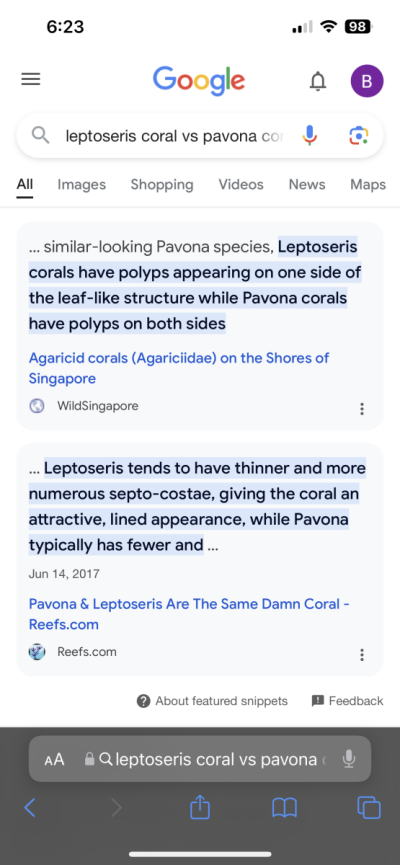I noticed these two look nearly identical, can anyone help me understand what features set these two genus of coral apart?
Is it some small difference in the skeleton, behavior, or something else?
I know these two corals are in the same family and are closely related, but what specifically separates them into two genus when they look so similar? I'm curious why they've been classified this way (genuinely) and not trying to be a smart aleck. I want to learn about them
Is it some small difference in the skeleton, behavior, or something else?
I know these two corals are in the same family and are closely related, but what specifically separates them into two genus when they look so similar? I'm curious why they've been classified this way (genuinely) and not trying to be a smart aleck. I want to learn about them




















